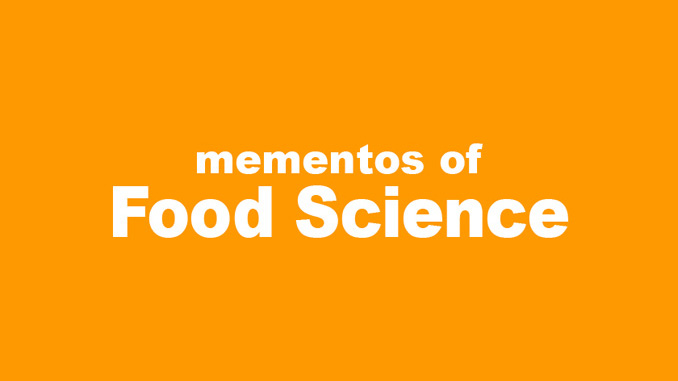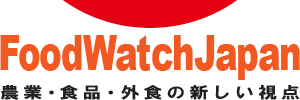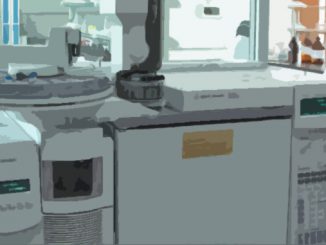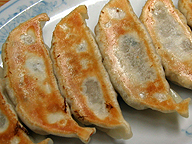
バイテク作物の生産は、1996年に初めて商業栽培されてから年々増加している。現在、栽培面積は1億ヘクタールを超え、世界23カ国で栽培されている。Clive James氏率いる国際アグリバイオ事業団(ISAAA)の最新レポートはそう記している。しかし、その中に、私が第2の故郷と定めた日本は含まれていない。
The commercial production of biotech crops has increased continuously since the first crops were grown in 1996. Today production has exceeded 100 million hectares and biotech crops are grown commercially in 23 countries, according to a report released recently by ISAAA (the International Service for the Acquisition of Agri-biotech Applications, Clive James, 2007). Notably absent from the list of producing countries is Japan, my recently adopted home.
私の名前は、James H. Maryanski(ジェームス・マリアンスキー)。この欄で、農業バイオテクノロジーや食品の安全性について、私なりの考えをお伝えして行きたい。私は米国人で、米国食品医薬品局(FDA)を06年に定年退官するまで、20年に渡って食品バイオテクノロジー政策の立案そしてそれらを取りまくさまざまな問題を調整する任に当たってきた。現在は、コンサルティング業を営んでいる。遺伝子組換え技術を用いて開発された農作物や食品の安全性の問題について専門的なアドバイスを提供している。主として、バイテク食品の安全性についての国際基準や米国で培った私の経験などを講演することが多い。
コンサルティング業務ではまた、クライアントである企業にバイテク食品やチーズなど醗酵食品の生産に使われる酵素のような原材料、これもまた遺伝子組換えの政府認可を得るために必要な安全性試験や法的な要求事項について助言をしている。食品の安全性監督者としての私の前職から、今でも一貫して、企業に遺伝子組換え食品を使用するよう促すことはしていない。しかし、私は強く信じている。FDAや日本の厚生労働省、食品安全委員会あるいは他国政府が、国際的に採択された指針に基づき審査したのであれば、その先端バイオ技術を用いて開発された食品は、消費者にとってほかの食品と同様に安全であると。
FDA時代、バイテク食品の安全性評価のための科学的アプローチを構築するため、たびたび国際フォーラムに出席した。世界保健機構(WHO)や食糧農業機関(FAO)では専門コンサルタントを務め、Codex委員会バイオテクノロジー応用食品特別部会では米国代表団の科学顧問の任を担った。その特別部会とはCodex委員会によって作られた臨時委員会で、日本を議長国としバイオテクノロジー応用食品の安全性指針の策定に当たるものであった。また、Codex委員会食品表示部会(CCFL)では、長年米国政府を代表してきた。
経済協力開発機構(OECD)新規食品・飼料の安全性に関するタスクフォースでは、米国代表団を統率してきた。バイテク食品の安全性について科学的な資料を作り上げることを目的とするそのタスクフォースはまた、加盟国やオブザーバーに現代バイオテクノロジーの応用に関する食品安全性の諸問題を議論する公開討論の場を提供している。日本の農林水産省および厚生労働省も活発なメンバーである。そのタスクフォースは、コメ、トウモロコシ、ダイズなどの穀物の化学組成に関する科学資料を公表しているが、これら資料は、バイテク食品の安全性評価に当たって、きわめて役立つものである。
Ohio State Universityで微生物学を学び65年に理学士を取得。同年、シンシナティにある米国保健局の食品微生物学研究所に雇われ、米航空宇宙局(NASA)の無人宇宙船を無菌化するための乾熱処理の開発に明け暮れた。その後、ボストンの北にあるUniversity Of New Hampshireで、微生物学はもとより、分子生物学、海洋科学を学び、72年に博士号を取得する。72年から76年まで、国立衛生研究所で研究員として勤務した後、77年にFDAに入った。
私が日本を最初に訪れたのは今から20年前である。以来、国際会議や日本政府との二国間会議などで、たびたび訪れる機会に恵まれた。04年に、在京アメリカ大使館の招きで東京に2カ月滞在した。その間、さまざまな団体や会合でバイテク食品の安全性について講演させていただいた。また、つくば市の研究施設を訪れることもできた。そして縁あって、現在、私は妻と東京に住んでいる。
冒頭のISAAAの代表Clive James氏と初めて会ったのは、数年前である。James氏は、世界の農業、特に、バイテク作物について実に豊かな経験を有している。私たちは協力して、WHOのために食品バイオテクノロジーの世界的現状について報告書をまとめた。客観的で事実に基づいた報告書をWHOのために作成するという共通の認識を持って共に仕事に励んだ。
多くの人々は、バイテク食品は社会から受容されず、世界の食流通から消えてなくなるだろうと考えている。しかし、国際アグリバイオ事業団の報告書は、まさにその逆を伝えている。過去10年間、バイテク作物を栽培していたのは、主に南北アメリカ諸国であった。現在、インドと中国が急速に現代バイオテクノロジーを採用している。インドの農業者は、収穫が増え、化学農薬の使用も少なくてすみ、そして収入が増えたことにより利益を得ている。インドでは、今後、遺伝子組替え技術を用いたコメ、コムギ、マメや油糧種子が栽培されるとみられている。
中国では、ワタ、トマト、パパイヤ、アマトウガラシが生産されている。フィリピンやオーストラリアもしかり。フィリピンでは、バイテクトウモロコシが生産されており、米国からはバイテク産品を輸入している。干ばつに苦しむオーストラリアは、今年、わずかではあるがBtワタを生産する。
同事業団の報告書は、バイテク作物の生産にフォーカスしているが、それら生産されたバイテク作物がどこで食品、飼料、あるいは繊維、そして昨今では、燃料として使われているのか分かれば、さらに有益であろう。例えば日本は、大量のトウモロコシやダイズをほぼ畜産飼料としてではあるが輸入している。とはいえ、同報告書は、先進国と発展途上国のあらゆる規模の生産者が急速にバイテク作物を採用していると力強く主張している。バイテク作物は、万能薬ではないが、食糧安全保障を強化する上で重要な役割を担うであろうとも。そして、私もそう確信する一人である。
*本稿で表記するバイテクは、遺伝子組換えを意味するものとする(FoodScience編集部)
My name is James (Jim) Maryanski and I would like to share some thoughts on agricultural biotechnology and food safety in this column. I am American and a former regulatory official with the U.S. Food and Drug Administration (FDA), where I served for 20 years coordinating the development of FDA’s food biotechnology policy. I retired from government service in 2006. I now manage a consulting business that provides expert advice related to food safety for agricultural crops and food products developed using modern biotechnology (biotech foods). Primarily, I lecture on the international standards for food safety for foods derived using modern biotechnology and the experience gained in the U.S.A.
As was the case when I was a food safety regulator, I do not promote the use of biotech foods for companies. However, I believe firmly that foods developed using modern biotechnology that have been reviewed by the FDA or the health ministry (MHLW) in Japan or by other governments that follow the internationally adopted guidelines are as safe as other foods for consumers.
During my career, I participated in international forums to develop a scientific approach for assessing the safety of biotech foods. I was a consultant to the World Health Organization (WHO) and the Food and Agriculture Organization (FAO) and I was also the scientific advisor to the U.S. Delegate to the Codex Ad Hoc Intergovernmental Task Force on Foods Derived from Biotechnology. The Task Force was a temporary committee established by the Codex Alimentarius Commission (the Codex) chaired by Japan to develop biotech food safety guidelines. The Codex is an organization within the United Nations under the FAO and WHO charged with establishing food standards, codes of practice and guidelines for food safety and to facilitate free trade. Codex decisions are recognized by the World Trade Organization (WTO) in dispute resolutions. I also represented the U.S. government on biotech labeling to the Codex Committee on Food Labeling.
I lead the U.S. delegation to the Organization for Economic Cooperation and Development’s Task Force on Novel Foods and Feeds (OECD Task Force) that develops scientific documents on biotech food safety. Japan’s Ministry of Agriculture, Forestry, & Fisheries (MAFF) and Ministry of Health, Labor & Welfare (MHLW) are active members of the OECD Task Force.
I received a Bachelor of Science in microbiology in 1965 from Ohio State University, and was employed by a food microbiology laboratory to develop dry-heat processes to sterilize unmanned spacecraft for NASA. Later, I studied microbiology, molecular biology, and marine science at the University of New Hampshire (just north of Boston), where I received a Ph.D. in 1972. From 1972-1976, I was a researcher at the National Institutes of Health before joining the FDA in 1977.
My first trip to Japan was 20 years ago and I have made many visits to Tokyo for seminars, conferences, and government meetings. In 2004, I had an opportunity to work in Tokyo with the Agriculture Office of the U.S. Embassy I was honored to present lectures on the safety of biotech foods to various associations and to visit the Tsukuba Research Institute. I now live with my wife in Tokyo.
I first meet Dr. Clive James, Chair, ISAAA Board of Directors, several years ago when we prepared a report for the WHO on the global status of food biotechnology. Dr. James has extensive experience in global agriculture, especially biotech crops. We shared a common interest in drafting a report for WHO that would be factual and objective.
Many have thought that biotech foods would fade from the global food chain due to the lack of public acceptance. The ISAAA report argues to the contrary. In the past decade, biotech crops were produced mainly in the Americas. Now the ISAAA data show that India and China are rapidly adopting modern biotechnology Farmers in India have benefited from increased yield, reduced use of chemical pesticides, and increased income,,and India is likely to produce biotech rice, wheat, pulse and oil seed.
China is producing biotech cotton, tomato, papaya, sweet pepper. The Philippines and Australia are the other biotech producing countries in the Asian region. The Philippines produces maize and imports biotech commodities from the U.S.A. Australia, suffering from a continuing drought, is expected to produce a limited amount of Bt cotton this year.
The ISAAA report only presents data on biotech crop production. It would be informative to know where these crops are used for food, feed, fiber, and recently for fuel. For example, Japan imports large amounts of biotech corn and soybean, mostly for animal feed. Nevertheless, the ISAAA report makes a strong case that growers in both developed and developing countries, including large and small farmers, are increasingly adopting biotech crops. Biotech crops are likely to be an important tool, though not a panacea, to enhance food security.
※このコラムは「FoodScience」(日経BP社)で発表され、同サイト閉鎖後に筆者の了解を得て「FoodWatchJapan」で無償公開しているものです。



